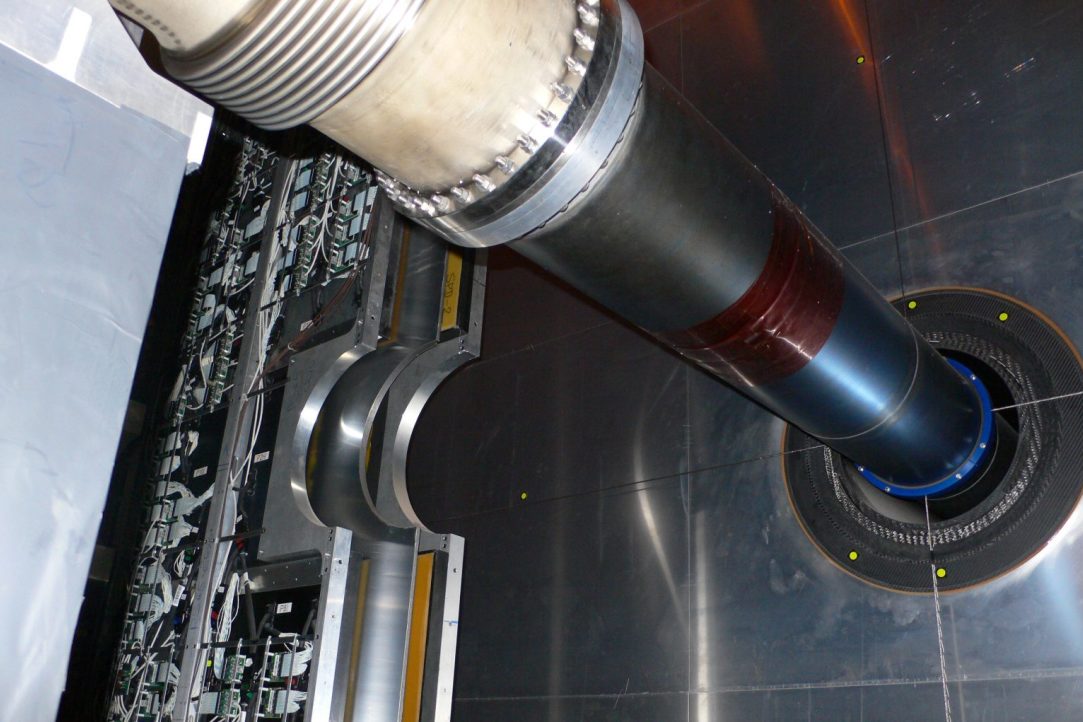Faculty of Computer Science Lab Develops Monitoring System for LHC Experiment

Researchers from the Laboratory of Methods for Big Data Analysis (LAMBDA) at the HSE Faculty of Computer Science have created a monitoring system that is used in the Large Hadron Collider beauty experiment (LHCb). The system helps track the quality of the collected data and allows operators to quickly find errors.
Researchers use the LHC to collide elementary particles and observe the results of these collisions. It is very important to detect what exactly happens during a collision and to precisely track the particles’ trajectories. The results are presented as a large number of 3D photos—several thousand shots a second.
The shots of particles are taken by a detector—a huge camera 30 m in length. The camera consists of different layers, each of which performs a particular task. For example, the first layer allows a particle go through and detects the reaction of the environment; the next layer registers its trajectory; and the last one absorbs the particle. It is important to ensure that the system of data collection works properly and that the researchers get good data to use in their research. But since the number of shots is huge, there is an issue of how to analyse its quality. Any bad pixel on the matrix may have a critical impact on the data, since that could be the location of the desired particle.
Researchers from LAMBDA proposed a system with AI elements that processes all shots and scans them for anomalies, after which it advises the operator of the experiment to pay attention to those launches that it considers problematic or in need of attention.

Denis Derkach, Senior Research Fellow at LAMBDA
‘The Large Hadron Collider has been launched in cycles: the first cycle took place from 2010 to 2012, the second from 2014 to 2018, and the third one will last from 2022 to 2024. Today, CERN is “warming up” the collider and testing it before the big launch, which will take place in the coming weeks. We have prepared a monitoring system for the LHCb experiment: the system makes it possible to track the status of the experiment from anywhere in the world, while machine-learning algorithms decrease the time needed to find issues with the data.’
The Large Hadron Collider beauty experiment (LHCb) is one of the four key detectors of the Large Hadron Collider. Each of the LHC experiments has its own tasks, systems, and solutions. The main focus of LHCb are B mesons, which contain beauty quarks—hence the name of the experiment.

